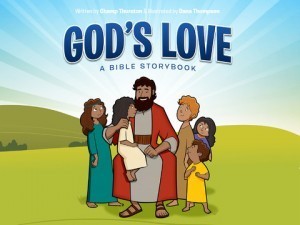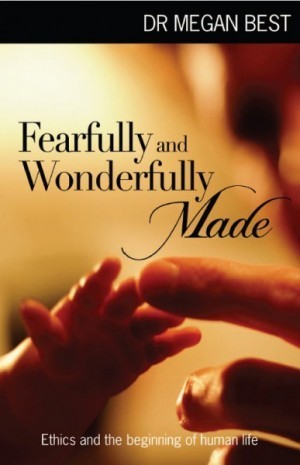Justin Taylor's Blog, page 170
February 18, 2013
A New Documentary on Orphan Care: The Drop Box
In December 2009, a Korean pastor named Lee Jong-rak built a wooden “drop box” on the outer wall of his home. But the box wasn’t intended for clothing, food, or school supplies, it was meant to collect unwanted babies.
When “the drop box” “or “baby box” was constructed a few years ago, it flew completely under the radar of Korean government officials. However, as more and more children arrive in this box every week, the nation is starting to take notice.
Lee knows that his little wooden box isn’t the best solution, but his plight points to a much larger issue of abandonment, both in Korea, and across the globe.
As a simple man, with little education and no public notoriety, Lee was voiceless, much like the children he has sworn to protect.
Soon, the whole world will know his story.
Here is a trailer for the film:
February 17, 2013
Mohler’s 10 Books Every Preacher Should Read
 Each year I look forward to Al Mohler’s book survey for preachers for Preaching Magazine. “The 2012 Preaching Survey of the Year’s Best Books for Preachers” is no disappointment.
Each year I look forward to Al Mohler’s book survey for preachers for Preaching Magazine. “The 2012 Preaching Survey of the Year’s Best Books for Preachers” is no disappointment.
The whole thing, which surveys a significant number of books, is worth reading in detail. At the end is his top 10, which I’m reprinting below:
The Juvenilization of American Christianity by Thomas E. Bergler (Eerdmans)
Sojourners and Strangers: The Doctrine of the Church by Gregg R. Allison (Crossway)
Reading the Gospels Wisely: A Narrative and Theological Introduction by Jonathan T. Pennington (Baker Academic)
Christ-Centered Biblical Theology: Hermeneutical Foundations and Principles by Graeme Goldsworthy (InterVarsity Press)
Through the Eye of a Needle: Wealth, the Fall of Rome, and the Making of Christianity in the West, 350-550 AD by Peter Brown (Princeton University Press)
Coming Apart: The State of White America, 1960-2010 by Charles Murray (Crown Forum)
The Intolerance of Tolerance by D. A. Carson (Eerdmans)
Bad Religion: How We Became a Nation of Heretics by Ross Douthat (Free Press)
God Is Love: A Biblical and Systematic Theology by Gerald Bray (Crossway)
Delighting in the Trinity: An Introduction to the Christian Faith by Michael Reeves (InterVarsity Press)
You can also read the podcast transcripts for Mohler’s conversation with some of these authors: for example, see his interviews with Murray, Carson, and Douthat.
February 15, 2013
How to Interview the Apostle Paul Today
 Paul, thanks for taking a few minutes to walk me through Romans 7:1-13. (It’s a great letter, by the way.)
Paul, thanks for taking a few minutes to walk me through Romans 7:1-13. (It’s a great letter, by the way.)
Let’s start with your intended audience here. Who are you talking to?
Those who know the law.
Is the law still binding on them?
The law is binding on a person only as long as he lives.
Can you give an example of this principle from everyday life?
Sure. A married woman is bound to her husband while he lives.
You gave the initial principle as “the law is binding on a person only as long as he lives,” which had one person and a law. But now you’ve introduced two persons, bound to each other by a common law. I think I’m tracking with you. So when does that “binding” cease to exist?
If her husband dies, then she is released from the law of marriage.
And what happens if she is unfaithful while she is bound to her husband and under the law of marriage?
If she lives with another man while her husband is still alive, she will be called an adulteress.
But she’s not bound if she becomes a widow?
If her husband dies, then she is free from the law of marriage.
And if she is free from the marriage law, then she is free to join to a new man?
If her husband is dead and she remarries, then she is not an adulteress.
This marriage-law-divorce-remarriage stuff is helpful in illustrating your point: “The law is binding on a person only as long as he lives.” So what’s the upshot with regard to Christians and the law?
We have died to the law.
By what means did we die to the law?
We died to the law through the body of Christ.
For what purpose did we die to the law?
We died to the law so that we would belong to another—to him who has been raised from the dead.
Why did God join us to Christ?
So that we could bear fruit for God.
What kind of fruit will we bear if we are under the law and not united to Christ?
While we were living in the flesh, our sinful passions, aroused by the law, were at work in our members to bear fruit for death.
So we’re not under law?
We are released from the law.
You’re saying we’re dead to the law?
We died to that which held us captive.
What are the results of our death to law?
We now serve in the new way of the Spirit . . .
As opposed to?
. . . the old way of the letter.
I’m tracking with you now. The old way of the letter—the Mosaic law-covenant before Christ—held us captive, aroused our sinful passions, and produced deadly fruit. So we have to die to it and in a sense get remarried to a new person, the resurrected Christ. So the law is now sinful?
The law is sin?! By no means!
Ok, sorry. (You don’t have to yell.) Does the law do anything good with regard to sin?
If it had not been for the law, I would not have known sin!
Can you give an example?
I would not have known what it is to covet if the law had not said, “You shall not covet.”
So the law gives knowledge of sin, in this case coveting. But what led to the actual act of coveting?
Sin.
How so?
Sin, seizing an opportunity through the commandment, produced in me all kinds of covetousness.
But wouldn’t I still sin even if there were no commandments in the written code?
Apart from the law, sin lies dead.
Another death metaphor! Let me try to restate: Sin was dead, then the law came and sin came to life. Sin killed me through the law. But Christ’s death made me die to the law. So before the law came, were you dead or alive?
I was once alive apart from the law.
But then God revealed his law-covenant and what happened?
When the commandment came, (a) sin came alive and (b) I died.
So something that promised you spiritual life led to your spiritual death?
The very commandment that promised life proved to be death to me!
And you said it wasn’t that commandment that killed you but sin using the commandment?
Sin, seizing an opportunity through the commandment, deceived me and through it killed me.
Let me try to put all this in chart form. (I work better when I doodle sometimes.)
No Law
Law Arrives
Christ Dies
Sin is dead
Sin is alive
Sin is dead
I am alive
I am dead
I am alive
Let’s go back to the law again. To reiterate: you think the law itself is a good thing?
The law is holy.
The commandment is holy, too?
The commandment is holy and righteous and good.
But this good law-covenant—the commandment—it killed you?
By no means!
Argh. Sorry! So what killed you spiritually?
It was sin, producing death in me through what is good.
Why would God do this?
In order that sin might be shown to be sin, and through the commandment sin might become sinful beyond measure.
Romans 1:7-13
Or do you not know, brothers—for I am speaking to those who know the law—that the law is binding on a person only as long as he lives? 2 For a married woman is bound by law to her husband while he lives, but if her husband dies she is released from the law of marriage. 3 Accordingly, she will be called an adulteress if she lives with another man while her husband is alive. But if her husband dies, she is free from that law, and if she marries another man she is not an adulteress.
4 Likewise, my brothers, you also have died to the law through the body of Christ, so that you may belong to another, to him who has been raised from the dead, in order that we may bear fruit for God. 5 For while we were living in the flesh, our sinful passions, aroused by the law, were at work in our members to bear fruit for death. 6 But now we are released from the law, having died to that which held us captive, so that we serve in the new way of the Spirit and not in the old way of the written code.
7 What then shall we say? That the law is sin? By no means! Yet if it had not been for the law, I would not have known sin. For I would not have known what it is to covet if the law had not said, “You shall not covet.” 8 But sin, seizing an opportunity through the commandment, produced in me all kinds of covetousness. For apart from the law, sin lies dead. 9 I was once alive apart from the law, but when the commandment came, sin came alive and I died. 10 The very commandment that promised life proved to be death to me. 11 For sin, seizing an opportunity through the commandment, deceived me and through it killed me. 12 So the law is holy, and the commandment is holy and righteous and good.
13 Did that which is good, then, bring death to me? By no means! It was sin, producing death in me through what is good, in order that sin might be shown to be sin, and through the commandment might become sinful beyond measure.
February 14, 2013
Free Illustrated Audio Bible App for Kids
 Through this weekend, God’s Love: A Bible Storybook by Champ Thorton and Positive Action for Christ, will be available as a free app in the iTunes store.
Through this weekend, God’s Love: A Bible Storybook by Champ Thorton and Positive Action for Christ, will be available as a free app in the iTunes store.
A print edition is also available; enter “Love1″ for free shipping & handling; click here for samples.
You can read an interview with the author here.
Our kids have enjoyed both the print edition and the app, so I’m happy to recommend it to others!
February 13, 2013
How Could God Command Genocide in the Old Testament?
This is a good, hard question. The way we answer it will both reflect and inform our understanding of justice and mercy.
In the book of Joshua God commands Israel to slaughter the Canaanites in order to occupy the Promised Land. It was a bloody war of total destruction where God used his people to execute his moral judgment against his wicked enemies. In moving toward an answer it will be helpful to think carefully about the building blocks of a Christian worldview related to God’s justice and mercy.
1. As the maker of all things and the ruler of all people, God has absolute rights of ownership over all people and places.
“In the beginning, God created the heavens and the earth” (Gen. 1:1) “and the sea and all that is in them” (Act 14:15). This means that “The earth is the LORD’s and the fullness thereof, the world and those who dwell therein” (Ps. 24:1). As God says, “All the earth is mine” (Ex. 19:5) and “every beast of the forest is mine” (Ps. 50:10). God’s ownership of all means that he is also free to do as he wishes over all things. “Our God is in the heavens; he does all that he pleases” (Ps. 115:3). Within this free sovereignty God “determined allotted periods and the boundaries of [each nation's] dwelling place” (Acts 17:26). God has Creator rights, and no one can say to him, “What are you doing?” (Job 9:12).
2. God is not only the ultimate maker, ruler, and owner, but he is just and righteous in all that he does.
Abraham asks God the same question that we are asking, “Shall not the Judge of all the earth do what is just?” (Gen. 18:25). The implied answer is, “By all means!” This is the flip side of Paul’s question in Romans 9:14: “Is there injustice on God’s part?” Paul’s answer: “By no means!” Moses will later proclaim, “The Rock, his work is perfect, for all his ways are justice. A God of faithfulness and without iniquity, just and upright is he” (Deut. 32:4).
It is commonplace in our culture to ask whether this or that was fair or just for God to do. But if you stop to think about it, the question itself is actually illegitimate. Merely asking it presupposes that we are the judge; we will put “God in the dock” and examine him; God must conform to our sense of fairness and rightness and justice—if God passes the test, well and good, but if he doesn’t, we’ll be upset and become the accuser. Perish the thought. As Deuteronomy 32:4 says, “all God’s ways are justice”—by definition. If God does it, it is just. (And since the triune God is inherently relational, the Bible says that God is love—and therefore all of his justice is ultimately born from and aiming toward love.) To think otherwise is the ultimate act of arrogance, putting your own mind and opinions and conceptions as the ultimate standard of the universe.
This does not, however, preclude humble questioning and seeking in order to gain greater understanding. While it is ultimately illegitimate to ask if God’s ways are just in securing the Promised Land, it is perfectly appropriate and edifying to seek understanding on how God’s ways are just—whether in commissioning the destruction of the Canaanites or in any other action. This is the task of theology—seeing how various aspects of God’s truth and revelation cohere.
3. All of us deserve God’s justice; none of us deserve God’s mercy.
As noted above, God is absolutely just in all that he does. The only thing that any of us deserve from God is his justice. We have broken his law, rebelling against him and his ways, and divine justice demands that we receive divine punishment in proportion to our traitorous, treasonous rebellion. It is fully within God’s rights to give mercy, but he need not give it to all—or to any. It is also helpful to note that in biblical history, an act of judgment on one is often an act of mercy for another (e.g., the flood was judgment on the world but a means of saving Noah; the plagues were judgment on the Pharaoh but a means of liberating Israel). Likewise, the destruction of the Canaanites was an act of mercy for Israel.
4. The Canaanites were enemies of God who deserved to be punished.
“All have sinned and fall short of the glory of God”—”None is righteous, no, not one”—and “the wages of sin is death” (Rom. 3:23; 3:10; 6:23). Therefore if God destroyed Adam and Eve after the fall he would have been entirely just. When he wiped out over 99.99% of the human race during the time of Noah, he was being just.
Sometimes we can mistakenly think that God just wanted to give his people land and kicked out the innocent people who were already there. But in reality, the Canaanites were full of iniquity and wickedness, and God speaks of the land vomiting them out for this reason (cf. Gen. 15:6; Lev. 18:24-30; Deut. 9:5). All of this is consistent with the fact that God “avenges the blood of his children and takes vengeance on his adversaries. He repays those who hate him and cleanses his people’s land” (Deut. 32:43).
It’s also important to note Deuteronomy 9:5, which says that Israel’s possession of the land and the Canaanites’ being kicked out would not be due to Israel’s righteousness, but would rather be on account of the Canaanites’ wickedness. God very pointedly tells Israel that if they do not follow the Lord and his law, then they will suffer the same fate as the nations being vomited out of their land (cf. Lev. 18:28; Deut. 28:25-68; cf. also Ex. 22:20; Josh. 7:11-12; Mal. 4:6). God gave his special electing love to Israel (cf. Deut. 7:6-9), but his threats and promises of punishment for unfaithfulness show his fairness and his commitment to justice.
5. God’s actions were not an example of ethnic cleansing.
The Pentateuch (Genesis-Deuteronomy) provides laws for two types of warfare: (1) battles fought against cities outside the Promise Land (see Deut. 20:10-15), and (2) battles fought against cities within the Promised Land (Deut. 20:16-18). The first type allowed for Israel to spare people; the second type did not. This herem practice (the second type of warfare) meant “devotion/consecration to destruction.” As a sacred act fulfilling divine judgment, it is outside our own categories for thinking about warfare. Even though the destruction is commanded in terms of totality, there seems to have been an exception for those who repented, turning to the one true and living God (e.g., Rahab and her family [Josh. 2:9], and the Gibeonites [Josh. 11:19]). What this means is that the reason for the destruction of God’s wicked enemies was precisely because of their rebellion and according to God’s special purposes—not because of their ethnicity. “Ethnic cleansing” and genocide refer to destruction of a people due to their ethnicity, and therefore this would be an inappropriate category for the destruction of the Canaanites.
6. Why was it necessary to remove the Canaanites from the land?
In America we talk about the separation of “church” and “state.” But Israel was a “theocracy,” where church and state were inseparably joined and indistinguishable, such that members of God’s people had both political and religious obligations. To be a citizen of Israel required being faithful to God’s covenant and vice-versa.
The covenant community demanded purity, and egregious violations meant removal (e.g., see Deut. 13:5; 17:7, etc). This also entailed the purity of the land in which they were living as God’s people, and failure to remove the unrepentant from the land meant that the entire nation would be pulled down with the rebellious, resulting in idolatry, injustice, and evil (e.g., Deut. 7:4; 12:29-31)—which sadly proved to be the case all too often under the old covenant.
Christians today are not in a theocracy. We are “sojourners and exiles” (1 Pet. 2:11) with no sacred land in this age. We live in the overlap of the old age and the age to come—”between two places” (in the creation that groans—after the holy-but-temporary Promised Land and awaiting the holy-and-permanent New Heavens and the New Earth). In this age and place we are to respect and submit to the governing authorities placed over us by God (Rom. 13:1-5)—but they are not, and should not be, a part of the church (God’s people called and gathered for Word and sacrament). Furthermore, God’s gift of specific, special revelation to the whole church has now ended (cf. Heb. 1:1-2: “Long ago, at many times and in many ways, God spoke to our fathers by the prophets, but in these last days he has spoken to us by his Son”). These factors combine to ensure that nothing like the destruction of the Canaanites—required for the theocracy of Israel to possess the physical land—is commissioned by God or is permissible for his people today.
7. The destruction of the Canaanites is a picture of the final judgment.
At the end of the age, Christ will come to judge the living and the dead (Acts 10:42; 2 Tim. 4:1; 1 Pet. 4:5), expelling them from the land (the whole earth). That judgment will be just, and it will be complete. That is the day “the Lord Jesus [will be] revealed from heaven with his mighty angels in flaming fire, inflicting vengeance on those who do not know God and on those who do not obey the gospel of our Lord Jesus. They will suffer the punishment of eternal destruction, away from the presence of the Lord and from the glory of his might (2 Thess. 1:8-9). Amazingly enough, Paul asks the Corinthians something they seem to have forgotten, if they once knew it: “Do you not know that the saints will judge the world? (1 Cor. 6:2).
How does this work? What will it look like? We don’t know for sure. But God’s Word tells us that God’s people will be part of God’s judgment against God’s enemies. In that way, God’s command of the Israelites to carry out his moral judgment against the Canaanites becomes a foreshadowing—a preview, if you will—of the final judgment.
Read in this light, the terrible destruction recorded on the pages of Joshua in God’s Holy Word become not a “problem to solve,” but a wake-up call to all of us—to remain “pure and undefiled before God” (James 1:27), seeking him and his ways, and to faithfully share the gospel with our unbelieving neighbors and the unreached nations. Like Job, we must ultimately refrain from calling God’s goodness and justice into question, putting a hand over our mouth (Job 40:4) and marveling instead at the richness and the mystery of God’s great inscrutable mercy (Eph. 2:4). At the end of the day we will join Moses and the Lamb in singing this song of praise:
“Great and amazing are your deeds,
O Lord God the Almighty!
Just and true are your ways,
O King of the nations!
Who will not fear, O Lord,
and glorify your name?
For you alone are holy.
All nations will come
and worship you,
for your righteous acts have been revealed.” (Rev. 15:3-4)
The discussion in the Introduction to the book of Joshua in the ESV Study Bible is helpful in thinking through this issue. For a more in-depth treatments, see Paul Copan’s article, “Is Yahweh a Moral Monster?”
February 12, 2013
How to Stop Church-Killing Gossip
Gossip involves saying behind a person’s back what you would never say to his or her face.
Flattery means saying to a person’s face what you would never say behind his or her back.
Here are some wise words from Dan Phillips for when you hear gossip from someone:
Ask, “Why are you telling me this?” Often, that in itself is such a focusing question that it can bring an end to the whole unpleasant chapter. It has the added benefit that it can help a person whose intentions are as good as his/her judgment is bad.
Ask, “What’s the difference between what you’re telling me and gossip?” See above; same effect, same potential benefits.
Ask, “How is your telling me that thought, that complaint, that information going to help you and me love God and our brothers better, and knit us closer together as a church in Christ’s love?” Isn’t that the goal we should share, every one of us? Won’t it take the working of each individual member (Eph. 4:16)? Isn’t the watch-out for harmful influences an every-member ministry (Heb. 3:12-13; 10:24; 13:12-15)?
Ask, “Now that you’ve told me about that, what are you going to do about it?” While the previous two are subjective, this is not. If neither of the previous two questions succeeded in identifying gossip/whispering/sowing-dissension for what they are, the answer to this question will do so. Tip: if the answer is “Pray,” a good response might be “Then why didn’t you do that and leave it there in the first place?”
Say, “Now that you’ve told me about that, you’ve morally obligated me to make sure you talk to ____ about it. How long do you think you need, so I can know when this becomes a sin that I will need to confront in you?” The least that this will accomplish is that you’ll fall off the list of gossips’/whisperers’ favorite venting-spots. The most is that you may head off a church split, division, harmed souls, sidelined Gospel ministry, and waylaid discipleship. Isn’t that worth it?
You can read the whole thing here.
Ray Ortlund explains what gossip is and why it is sinfully enticing:
Gossip is our dark moral fervor eagerly seeking gratification.
Gossip makes us feel important and needed as we declare our judgments.
It makes us feel included to know the inside scoop.
It makes us feel powerful to cut someone else down to size, especially someone we are jealous of.
It makes us feel righteous, even responsible, to pronounce someone else guilty.
Gossip can feel good in multiple ways. But it is of the flesh, not of the Spirit.
. . . Gossip is a sin rarely disciplined but often more socially destructive than the sensational sins.
Gossip leaves a wide trail of devastation wherever and however it goes – word of mouth, email, blogging, YouTube.
It erodes trust and destroys morale.
It creates a social environment of suspicion where everyone must wonder what is being said behind their backs and whether appearances of friendship are sincere.
It ruins hard-won reputations with cowardly but effective weapons of misrepresentation.
It manipulates people into taking sides when no such action is necessary or beneficial.
It unleashes the dark powers of psychological transference, doing violence to the gossiper, to the one receiving the gossip and to the person being spoken against.
It makes the Body of Christ look like the Body of Antichrist – destroyers rather than healers.
It exhausts the energies we would otherwise devote to positive witness.
It robs our Lord of the Church he deserves.
It exposes the hostility in our hearts and discredits the gospel in the eyes of the world. Then we wonder why we don’t see more conversions, why “the ground is so hard.”
Read the whole thing, including his own counsel on what you should do when you start to hear gossip.
February 11, 2013
Top 10 Reasons the Church Is Losing Our Youth
We all know them, the kids who were raised in church. They were stars of the youth group. They maybe even sang in the praise band or led worship. And then . . . they graduate from High School and they leave church. What happened?
It seems to happen so often that I wanted to do some digging—to talk to these kids and get some honest answers. I work in a major college town with a large number of 20-somethings. Nearly all of them were raised in very typical evangelical churches. Nearly all of them have left the church with no intention of returning. I spend a lot of time with them and it takes very little to get them to vent, and I’m happy to listen. So, after lots of hours spent in coffee shops and after buying a few lunches, here are the most common thoughts taken from dozens of conversations. I hope some of them make you angry. Not at the message, but at the failure of our pragmatic replacement of the gospel of the cross with an Americanized gospel of glory. This isn’t a negative “beat up on the church” post. I love the church, and I want to see American evangelicalism return to the gospel of repentance and faith in Christ for the forgiveness of sins; not just as something on our “what we believe” page on our website, but as the core of what we preach from our pulpits to our children, our youth, and our adults.
Here is his top 10 in reverse order:
10. The Church is “Relevant.”
9. They never attended church to begin with.
8. They get smart.
7. You sent them out unarmed.
6. You gave them hand-me-downs.
5. Community.
4. They found better feelings.
3. They got tired of pretending.
2. They know the truth.
1. They don’t need it.
Click through to read an explanation of each. Here’s his exposition of the final point:
Our kids are smart. They picked up on the message we unwittingly taught. If church is simply a place to learn life-application principals to achieve a better life in community . . . you don’t need a crucified Jesus for that. Why would they get up early on a Sunday and watch a cheap knockoff of the entertainment venue they went to the night before? The middle-aged pastor trying desperately to be “relevant” to them would be a comical cliché if the effect weren’t so devastating. As we jettisoned the gospel, our students are never hit with the full impact of the law, their sin before God, and their desperate need for the atoning work of Christ. Now THAT is relevant, THAT is authentic, and THAT is something the world cannot offer.
We’ve traded a historic, objective, faithful gospel based on God’s graciousness toward us for a modern, subjective, pragmatic gospel based upon achieving our goal by following life strategies. Rather than being faithful to the foolish simplicity of the gospel of the cross we’ve set our goal on being “successful” in growing crowds with this gospel of glory. This new gospel saves no one. Our kids can check all of these boxes with any manner of self-help, life-coach, or simply self-designed spiritualism . . . and they can do it more pragmatically successfully, and in more relevant community. They leave because given the choice, with the very message we’ve taught them, it’s the smarter choice.
Our kids leave because we have failed to deliver to them the faith “delivered once for all” to the church. I wish it wasn’t a given, but when I present law and gospel to these kids, the response is the same every time: “I’ve never heard that.” I’m not against entertaining our youth, or even jumbotrons, or pizza parties (though I probably am against middle aged guys trying to wear skinny jeans to be “relevant) . . . it’s just that the one thing, the MAIN thing we’ve been tasked with? We’re failing. We’ve failed God and we’ve failed our kids. Don’t let another kid walk out the door without being confronted with the full weight of the law, and the full freedom in the gospel.
HT: Scott Sauls and Matt Chandler
D. A. Carson: “This Is Now the ‘Must Read’ Book in the Field”
 Dr. Carson writes of Dr. Megan Best’s new book, Fearfully and Wonderfully Made: Ethics and the Beginning of Human Life (Matthias Media, 2012): “At last—a single volume examining beginning-of-life issues that is equally competent in biology, theology, philosophy, and pastoral care. This is now the ‘must read’ book in the field, a necessary resource not only for pastors, ethicists, and laypersons who share her Christian convictions, but also for anyone who wants to participate knowledgeably in current bioethical debates.”
Dr. Carson writes of Dr. Megan Best’s new book, Fearfully and Wonderfully Made: Ethics and the Beginning of Human Life (Matthias Media, 2012): “At last—a single volume examining beginning-of-life issues that is equally competent in biology, theology, philosophy, and pastoral care. This is now the ‘must read’ book in the field, a necessary resource not only for pastors, ethicists, and laypersons who share her Christian convictions, but also for anyone who wants to participate knowledgeably in current bioethical debates.”
Here is the publisher’s description of the book:
What sort of contraception, if any, should I use?
When does human life begin—at fertilization or at some point after that?
What are the arguments for and against abortion?
Is it OK to use genetic screening and other pre-natal tests to check for abnormalities in my unborn baby?
Should Christians use IVF and other assisted reproductive technologies?
What is the current state of embryonic stem cell research?
These are just some of the many complex and emotion-laden questions we face in the rapidly changing field of reproductive medicine, and most Christians do so with two very significant handicaps:
We don’t have accurate up-to-date information about the medical and technological issues involved
We have not thought through a sound, biblical framework for making ethical decisions in this area
Dr Megan Best provides what is lacking in both of these vital areas. Built on extensive historical, biblical and medical research, Fearfully and Wonderfully Made is the comprehensive, accurate, biblically-based ethical handbook that Christians have been waiting for.
A Pastor Addicted to Performance (and Narcotics)
In 2006 Joseph “Skip” Ryan resigned from the pastorate of Park Cities Presbyterian Church in Dallas. It was then revealed that he was an opiate addict, in bondage to prescription pain medicines. His marriage was also falling apart as he and his wife became little more than roommates.
You can watch below their painful but hopeful story of forgiveness and humbling and repentance and restoration:
HT: Dane Ortlund
February 8, 2013
An Interview with Lecrae on PBS
PBS’s Religion & Ethics NewsWeekly talks with Lecrae:
Watch Lecrae Extended Interview on PBS. See more from Religion & Ethics NewsWeekly.
HT: @TonyReinke
Justin Taylor's Blog
- Justin Taylor's profile
- 44 followers






